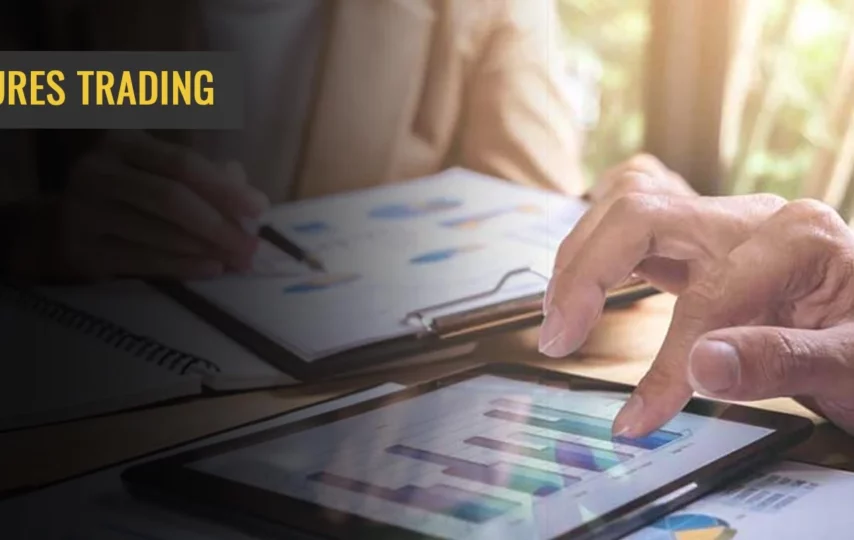Trading refers to the buying and selling of securities, such as stocks, bonds, currencies, and commodities, in the financial markets. The objective of trading is to generate profits by buying securities at a lower price and selling them at a higher price or by short-selling securities that are expected to decrease in value.
Trading can be done through various channels, such as a stock exchange, over-the-counter (OTC) markets, and electronic trading platforms. It can be conducted by individual traders, institutional investors, and financial firms.
What is Trading in Futures?
Trading in futures involves buying or selling contracts that obligate the buyer or seller to purchase or sell a specific asset, such as commodities, currencies, or securities, at a predetermined price and time in the future. Futures trading is done through futures exchanges, such as the Chicago Mercantile Exchange (CME), which provides a platform for buyers and sellers to trade standardized futures contracts.
Futures contracts are standardized agreements between two parties to buy or sell an underlying asset at a future date and a predetermined price. The buyer of a futures contract agrees to buy the underlying asset at the specified price, while the seller agrees to sell the asset at that price.
Futures trading is popular among investors who want to profit from price movements in various asset classes. For example, a farmer may sell futures contracts to lock in a price for his crop, while a speculator may buy futures contracts in anticipation of a price increase. Futures trading can also be used for hedging purposes, to reduce the risk of price fluctuations in a portfolio of investments.
Futures contracts have standardized specifications, including the underlying asset, contract size, delivery date, and settlement method. The settlement method can be physical delivery of the asset or cash settlement, where the difference between the contract price and the market price at expiry is settled in cash.
Futures trading can be done through a futures brokerage account, which provides access to the futures exchanges and a range of trading tools and platforms. It is important to note that futures trading involves significant risk and requires a thorough understanding of the markets, technical analysis, and risk management.
How to Trade in Futures?
Here are the steps to trade in futures
Open a Futures Trading Account
You need to open a futures trading account with a brokerage firm that offers futures trading. Make sure to choose a reputable broker with competitive fees and good customer service.
Fund Your Account
You need to fund your futures trading account to buy or sell futures contracts. Most brokerage firms require a minimum deposit to start trading.
Research the Futures Markets
Before trading in futures, you need to research the markets and understand the various factors that affect the prices of the underlying assets.
Choose the Contract you Want to Trade
There are many futures contracts available for trading in various asset classes, including commodities, currencies, and stock indices. You should choose the contract that suits your investment goals and risk tolerance.
Place an Order
Once you have chosen the futures contract you want to trade, you need to place an order with your broker. You can place a market order, which is executed at the current market price, or a limit order, which is executed at a specific price that you set.
Manage your Position
Once you have opened a position in a futures contract, you need to manage it by monitoring the price movements and taking necessary action to lock in profits or limit losses. This may involve setting stop-loss orders, trailing stops, and profit targets.
Close your Position
You can close your futures position at any time before the contract expires by placing an offsetting trade in the opposite direction. Alternatively, you can let the contract expire, and the settlement price will determine your profit or loss.
Advantages of Trading in Futures
Trading in futures offers several advantages, including:
Leveraged Trading
Futures trading allows investors to trade with leverage, which means that they can control a larger amount of the underlying asset with a smaller amount of capital. This magnifies both the potential profits and losses, so it is important to use proper risk management techniques.
High Liquidity
Futures markets are highly liquid, which means that there is a large number of buyers and sellers and it is easy to enter and exit trades. This allows traders to execute trades quickly and at a fair price.
Diversification
Futures trading offers a wide range of asset classes, including commodities, currencies, and stock indices, which allows investors to diversify their portfolios and reduce risk.
Transparency
Futures markets are highly regulated and transparent, with clear rules and procedures for trading and settlement. This provides investors with greater confidence and reduces the risk of fraud or manipulation.
Efficient Price Discovery
Futures markets provide an efficient mechanism for price discovery, which means that the market price reflects all available information about the underlying asset. This allows investors to make informed trading decisions based on current market conditions.
Hedging
Futures trading can be used for hedging purposes, which means that investors can use futures contracts to protect their portfolios from the risks of adverse price movements in the underlying asset. This can help to reduce risk and volatility in a portfolio.
How to open a Futures Trading Account?
To open a futures trading account, follow these general steps:
- Research and compare brokerage firms that offer futures trading accounts.
- Choose a broker that meets your needs and open an account with them by providing personal information.
- Fund your account by depositing the required minimum amount.
- Complete an application and other necessary paperwork, including legal agreements.
- Choose a trading platform that suits your preferences.
- Start trading futures contracts with proper risk management and trading strategies.
It is important to carefully read and understand the terms and conditions of your account, practice proper risk management, and use appropriate trading strategies to minimize risk and maximize returns.
Conclusion
Trading in futures offers several advantages to investors. However, it is important to remember that futures trading involves significant risk and requires a thorough understanding of the markets, technical analysis, and risk management.








